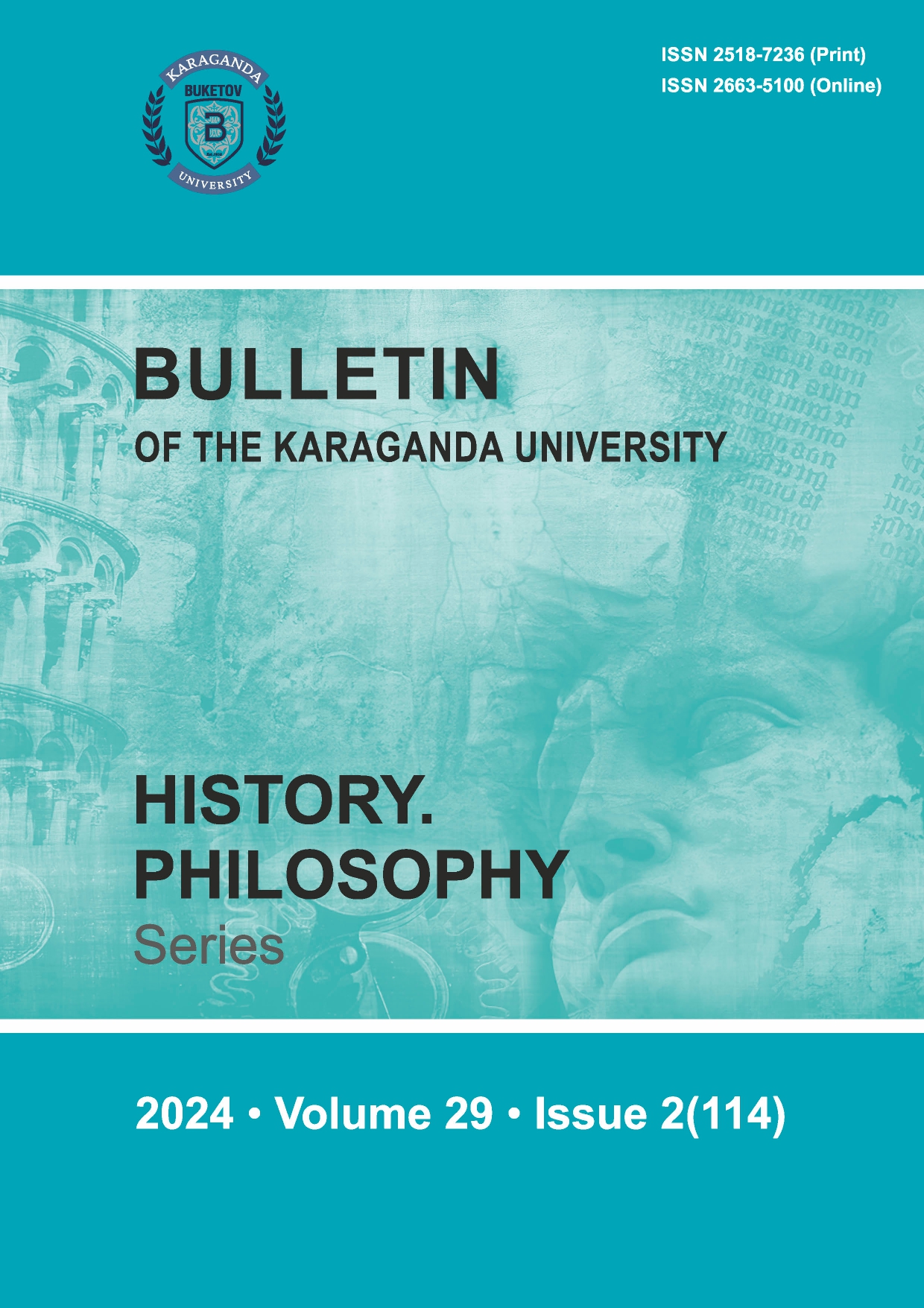Political and cultural situation in Kazakhstan in the XVIII–XIX centuries (historical aspect)
DOI:
https://doi.org/10.31489/2024hph2/88-94Keywords:
Russian Empire, accession of Kazakhstan to Russia, traditional Kazakh society, final rule of the Kazakh steppe, consequences of colonial policy, settlement of Russian peasants on the Kazakh land, fortresses, outpostsAbstract
The article describes the political situation and cultural situation of the Kazakh land in the period of the Russian Empire and describes the fact that in the XVIII–XIX centuries, the Tsarist authorities carried out various reforms for the final rule of the Kazakh steppe, expanding the countryethnic basis of the Kazakh people, dividing the ethnic groups, dividing them into provinces and districts, depriving the country of integrity. Our article reflects the colonial policy of the Tsarist government towards the Kazakh Steppe, which in some cases was tactically different from the open robbery attacks of the Khiva and Kokand khanates. It is indicated that the Tsarist government began to use an underground policy that led to the exposure of the Kazakh people to the influence of the Russian state and constant subordination to that state. The article also analyzes the policy of the Tsarist government, how the rulers of the Kazakh steppes work for them, buy them with a large reward.




